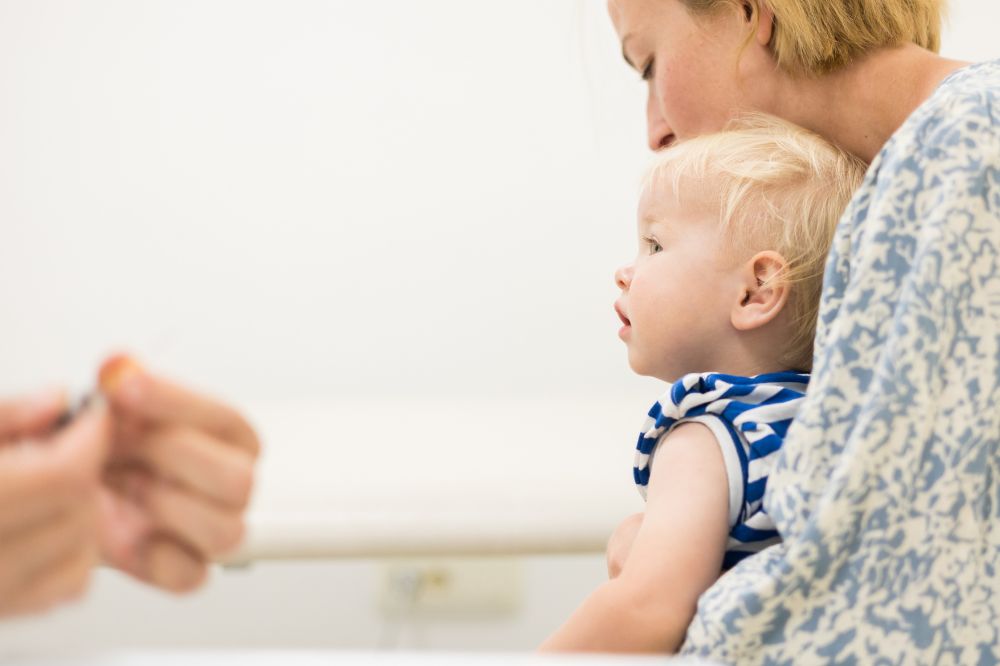‘Dangerous’ whooping cough on the rise

Richard Evans Local Democracy Reporter
Whooping cough is on the rise again after March saw the highest rate of the potentially ‘dangerous’ disease for ten years, Public Health Wales warned.
Statistics revealed there were more cases in Wales in one week of March 2024 than the whole of 2021 and 2022 combined.
Now pregnant women and those with young children are being urged to get a vaccine as the disease, also known as the 100-day cough, continues to spread in the community.
Public Health Wales figures show there were 55 reported cases of whooping cough in 2021, 55 in 2022, and 199 in 2023.
But in the four weeks from March 4 there were 315 cases. This included 122 cases in a single week, starting March 11, – more than 2021 and 2022 combined. The actual numbers are likely far higher as many cases go unreported.
Cases
Regional figures aren’t available for 2024, but north Wales, the area covered by Betsi Cadwaladr University Health Board, had the joint highest number of whooping cough cases in Wales in 2021, the highest number in 2022, and the second highest number in 2023.
Whooping cough can be treated with antibiotics and prevented with a vaccine.
Dr Christopher Williams is the consultant epidemiologist in health protection for Public Health Wales and said: “Notifications of whooping cough in Wales have risen again this week, and Public Health Wales is actively monitoring the situation. Every three to four years we expect to see increased waves of whooping cough infection. Following reduced circulation in 2020 to 2022, current notifications are at levels not seen since 2012 and 2015.
“Whooping cough is a vaccine preventable disease. The pertussis vaccine is included in the ‘6-in-1 vaccine’ given to babies at eight, 12 and 16 weeks, as well as a pre-school booster dose at around three years and four months. Since 2013 pregnant women have been offered a pertussis (whooping cough) vaccination from weeks 16 to 32 of pregnancy, to protect new-born babies before they receive their 6-in-1 vaccine.”
He added: “We would urge all pregnant women and parents of babies and young children to ensure they take up their offer of vaccination when given, or to ask their GP, midwife, or health visitor if they believe they may not have had it.”
Louise Evans, 47, from Conwy, has had a cough for weeks. “I started with cold symptoms, and it just got worse and worse,” she said.
“I had a high temp, a chesty cough, and sore ribs from straining. I felt awful. I’ve still got a cough now after the antibiotics.”
Whooping Cough Symptoms
After about a week, you or your child:
- will get coughing bouts that last for a few minutes and are worse at night
- may make a “whoop” sound – a gasp for breath between coughs (young babies and some adults may not “whoop”)
- may have difficulty breathing after a coughing bout and may turn blue or grey (young infants)
- may bring up a thick mucus, which can make you vomit
- may become very red in the face (more common in adults)
The cough may last for several weeks or months.
Ask for an urgent GP appointment or get help from NHS 111 if:
- your baby is under 6 months old and has symptoms of whooping cough
- you or your child have a very bad cough that is getting worse
- you’ve been in contact with someone with whooping cough and you’re pregnant
- you or your child has been in contact with someone with whooping cough and have a weakened immune system
- Whooping cough can spread very easily. It’s best to call the GP before you go in. They might suggest talking over the phone.
Check symptoms on 111 online (for children aged 5 and over) or call 111 (for children under 5).
Whooping cough can be dangerous. Babies under 6 months old with whooping cough have an increased chance of having problems such as:
- Dehydration
- breathing difficulties
- pneumonia
- seizures (fits)
Whooping cough is less severe in older children and adults but coughing may cause problems including:
- sore ribs
- hernia
- middle ear infections
- pee leaking out when you cough (urinary incontinence)
Call 999 or go to A&E if:
- you or your child’s lips, tongue, face, or skin suddenly turn blue or grey (on black or brown skin this may be easier to see on the palms of the hands or the soles of the feet)
- you or your child are finding it hard to breathe properly (shallow breathing)
- you or your child have chest pain that’s worse when breathing or coughing – this could be a sign of pneumonia
- your child is having seizures (fits)
For more information, visit https://www.nhs.uk/conditions/whooping-cough/
Support our Nation today
For the price of a cup of coffee a month you can help us create an independent, not-for-profit, national news service for the people of Wales, by the people of Wales.





